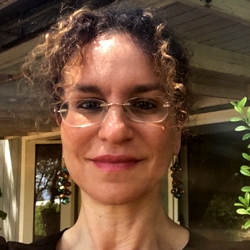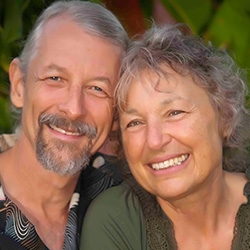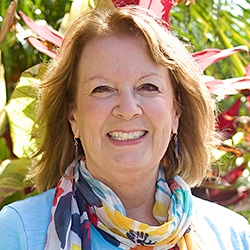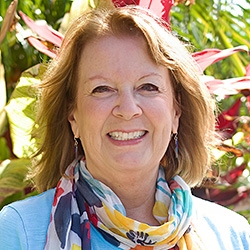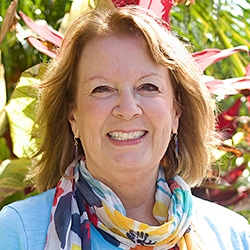

Search Results: judgment
-
Aya Caspi delves into the impact of societal structures and parenting approaches on individuals, particularly the prevalence of extrinsic motivation rooted in fear of punishment, desire for rewards, and a sense of obligation. The emphasis is on how these dynamics contribute to collective trauma and affect brain development. Examples, such as Hitler's childhood and the adverse effects of the educational system, are used to illustrate the consequences of such practices. Aya advocates for systemic change in these structures and emphasizes the role of non-judgmental practices in potentially reducing adult depression. The discussion highlights the importance of empathy and challenges the traditional methods that may lead to emotional neglect and trauma, emphasizing the potential benefits of embracing non-judgmental approaches in parenting and societal frameworks.
-
When deciding if someone crossed your boundaries and how to respond, you may get conflicting opinions on it. These opinions can be coarse attempts to manage life with rules about what should(n’t) happen. Instead, so that you can find where you want to invest your energy, ask yourself questions that reveal what for you is truly in integrity, nourishing, connects to your heart, and deepens self understanding. Read on for examples.
-
During this very moving session, you'll dive into Robert's exercises for supporting connection to your true self as opposed to your conditioned self.
-
Miki Kashtan helps a mother restore connection with her daughter after a painful conflict.
-
We each have the power to be the creator of our own inner experience, no matter what is going on externally. The moment you imply wrongness on others, you give power to them. In this excerpt, Aya Caspi shows that the more self-responsibility you take, the more freedom you will have.  
-
Building your body and mind awareness can help you better regulate/calm your emotions. Regular self-empathy will help you better regulate your emotions as well as increase your body and mind awareness. If you are not aware of amygdala activation (fight/flight/freeze response), you will react instead of responding with choice. Use this eight-step process to develop your self-empathy/regulation skills.
-
Whether its pandemics, climate change, damage to the environment or other massive challenges that humanity faces, what are we to do if we can't agree on even the most basic information and knowledge? From empathic understanding we can focus on shared, universal human needs (where there is no conflict or disagreement) underlying our perceptions, and feelings. Then we can see if there are ways we can agree on to meet those needs.
-
Listen to Jim and Jori Manske share their understanding of discernment to gain clarity, insight, and wisdom for making life-serving distinctions and choices.
-
How do you know when you’re projecting disowned parts or replaying old relationship dynamics? It’s hard to know for sure, but if you find yourself upset or shutting down and unable to have a dialogue in which you can speak clearly about your feelings and needs and empathize with the other’s feelings and needs, there is likely a projection. The stronger your reaction, the more likely you are projecting.
-
-
Ask the Trainer: The link between storytelling, being "right," and connecting to an unmet need.
-
Trainer Tip: People struggle to come to agreement when they don’t feel heard. So as a mediator, facilitate the process by asking all parties to reflect the essence of what's important to other parties. This is critical. Once everyone is confident that their needs have been heard, you'll notice the energy in the room relaxing. Then you can brainstorm strategies that will value everyone’s needs, and are focused on what they want to happen.
-
Trainer tip: Be aware of times when you are judging others, demanding, making comparisons, or denying responsibility for your actions. Notice how these communication patterns affect your connection with other people.
-
Our craving for love, acceptance, and approval can lead us to show only parts of ourselves and hide others. This lack of authenticity breeds disconnection and mistrust, leading to those very needs not being met. Once I accept myself, being authentic is easier. And then people in my life can love me for who I really am, warts and all.
-
Dear friends,
My book, Peaceful Living: Daily Meditations for Living with Love, Healing and Compassion has been on my mind a lot lately. It turns 20 years old next year, which I feel joyful about. Along the way, I came across this meditation that I wanted to share with you:
November 26
Change your thoughts and you change your world. – Norman Vincent PealeDeveloping Tolerance
I used to think that Chihuahuas were dumb dogs and bulldogs were ugly. Then one of my friends bought a longhaired Chihuahua named Tilly and another bought an English bulldog named Emma. Once I got to know these dogs and could see how truly sweet they are, it didn’t take long for me to fall in love with both of them.
-
Lorraine Aguilar perceives NVC-based listening to be an essential skill to cultivate for success in the business world. A key exercise for building your listening muscle is to work with your judgments of others by translating those judgments from “What’s wrong with them?” to “What's important to me?"
-
How do we live each and every day from the “living energy of needs” – with the unimpeded fullness of life’s energies flowing through us, regardless of the conflicts or life circumstances we may be experiencing? Through developing deep self-compassion. How can we experience our inner world from a place of utter and total compassion? When we practice compassionate self-care, we create an inner spaciousness that allows our life’s energies to flow. In that spaciousness both healing and inner transformation occurs. Robert’s work explores the interweaving of two co-intentions—to live life from the fullness of the “beauty of needs” and to approach every experience with deep compassion.
-
Conflict is a normal and natural part of life. To varying degrees, it happens whenever two or more people consistently spend time together. Resolving conflict effectively and peacefully, in a way in which all parties feel respected and valued, does not feel natural for those of us who grew up with punitive, adversarial, or avoidant approaches to conflict. Eric offers some tips for approaching conflict.
-
Trainer Tip: What is motivating your (in)actions? Are you doing something in the name of supporting deeper heartfelt needs, free of judgement or blame? Or are you bringing in consequences based on viewing the other person as having "bad behaviour"?
-
Trainer tip: NVC focuses on shared human values and needs, and encourages the use of language that increases good will -- plus avoidance of language that contributes to resentment or lowered self-esteem. It emphasizes taking personal responsibility for choices and improving the quality of relationships as a primary goal. For today, focus on making observations without moralistic judgment in at least two of your interactions.

Quick Links
Subscription Preferences
Stay In Touch!
Looking for ways to keep up with NVC Academy news, get special offers, free resources, or words of inspiration? Here are five ways to stay engaged:





